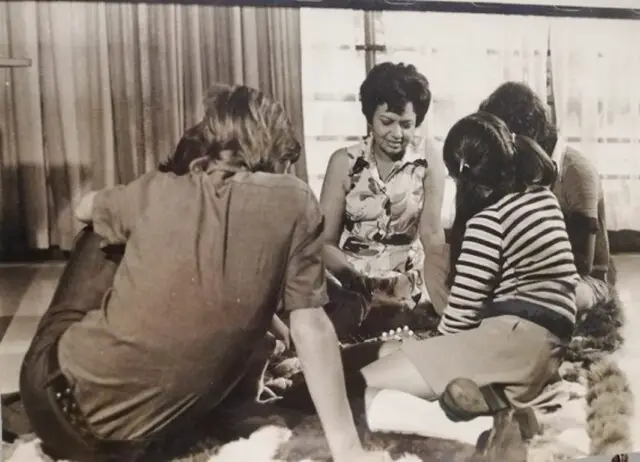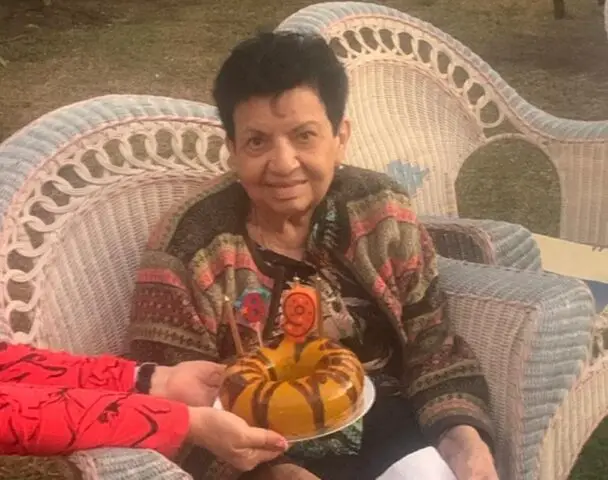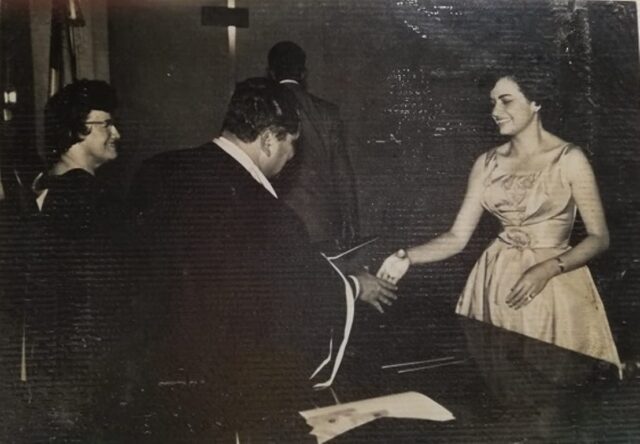Careers are not for men or women, they are for everyone”, as stated by Ivette Cambronero García, the first female engineer to graduate from the University of Costa Rica (UCR). She is part of the group of women who throughout the history of Costa Rica have had to mark milestones, historical moments, be different and open spaces.
Engineer Cambronero remembers being the only woman in her class, but that did not cause mistreatment or contempt, on the contrary, she remembers that all her colleagues respected her and were even affectionate, they called her “the godmother” for being a pioneer in her area.
Not easy
It was not easy, there were economic difficulties that required a greater effort. “I entered by mistake,” says Doña Ivette, who remembers that she wanted to be a teacher but bad advice made her enter engineering, a profession with which she immediately fell in love with. “I really liked mathematics and I asked a teacher how I did to graduate as a teacher and then she told me that I had to enter the School of Engineering, but it was not true, it was a mistake.
“It was that at that time there was no school for teachers, but then I entered Engineering and I liked it. I started studying in 1949, I went in and I really liked it, thank God I was able to get ahead,” says Doña Ivette. She graduated from UCR at 22, but postponed graduation because she was expecting the first of her four children.
Classroom with men
Doña Ivette fondly remembers all her companions, were all men. “They were very good to me,” she added. “I always felt it was the same for everyone, we all had the same opportunities. Careers are not for men or women, they are for everyone. I started to study with quite a tight budget, but thank God, little by little I started to progress,” said the 89-year-old engineer. For Doña Ivette, all people have to fight to struggle, to make their way into a profession at all costs.

“At that time they didn’t help you at all, now there are scholarships and facilities to study but not before. I even remember that the instruments to do the homework were very expensive, I had to borrow them”, she commented.
More than 30 years
In addition to opening the space to women in the engineering career, Doña Ivette was out of the mold and years later, despite having children and being married, decided to continue studying, get her thesis and maintained a professional career of more than 30 years in the Ministry of Public Works and Transport (MOPT).
In this entity (MOPT) she developed in different departments, school architecture, bridges, engineering transport, contract works and contracting of equipment and machinery. “I did not accept badly done things, thank God I had a good reputation for my work in public service. If some work was supervised by me, in the Comptroller General of the Republic they had confidence because they knew that one does not allow those thefts that now occur, and I would take a good look at the invoices, compare them with the progress of the work and make sure that nothing get lost ”, said the engineer.

Doña Ivette assures that despite being a pioneer in the engineering area, she never felt contempt or obstacles in her work, on the contrary, she assures that she always worked calmly, was never unemployed and never stopped learning.
In 1990, at 58 years old, Doña Ivette decided to retire, but did not go home to rest, since then she has made various collaborations with groups, she also likes to paint and occupy herself with different activities “that fill her life”.

No limits
For the engineer, the first woman to graduate from the UCR, there should be no limits to study and all people should follow their dreams, leaving aside obstacles or stereotypes, letting themselves be carried away, solely and mainly, by all those who make us happy. Currently the Federated College of Engineers and Architects (CFIA) registers a total of 7,933 professional women in this area.


